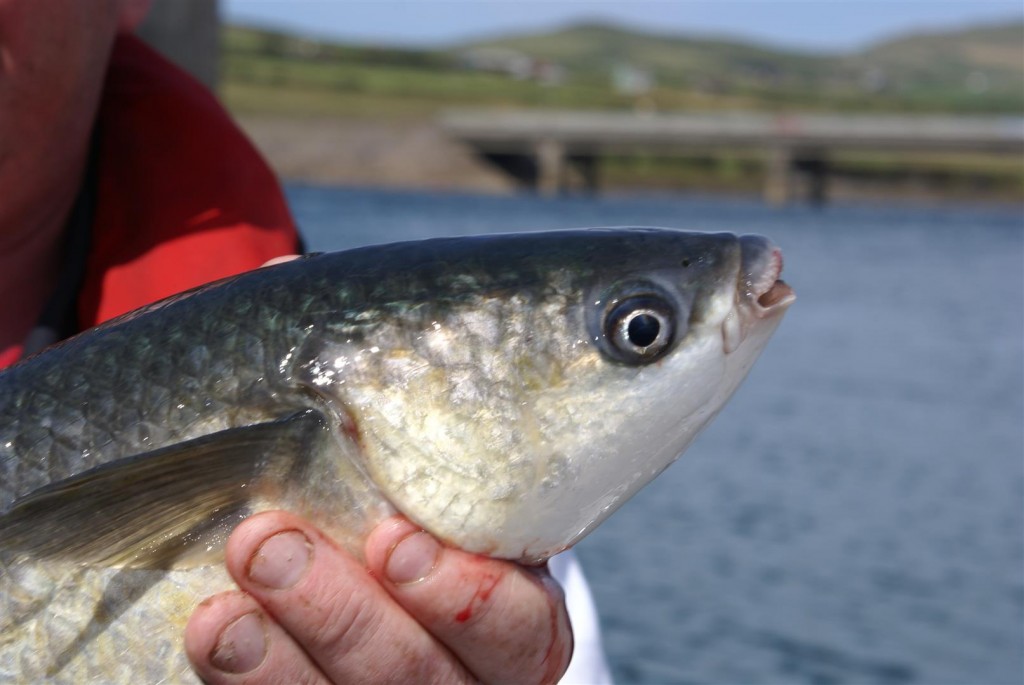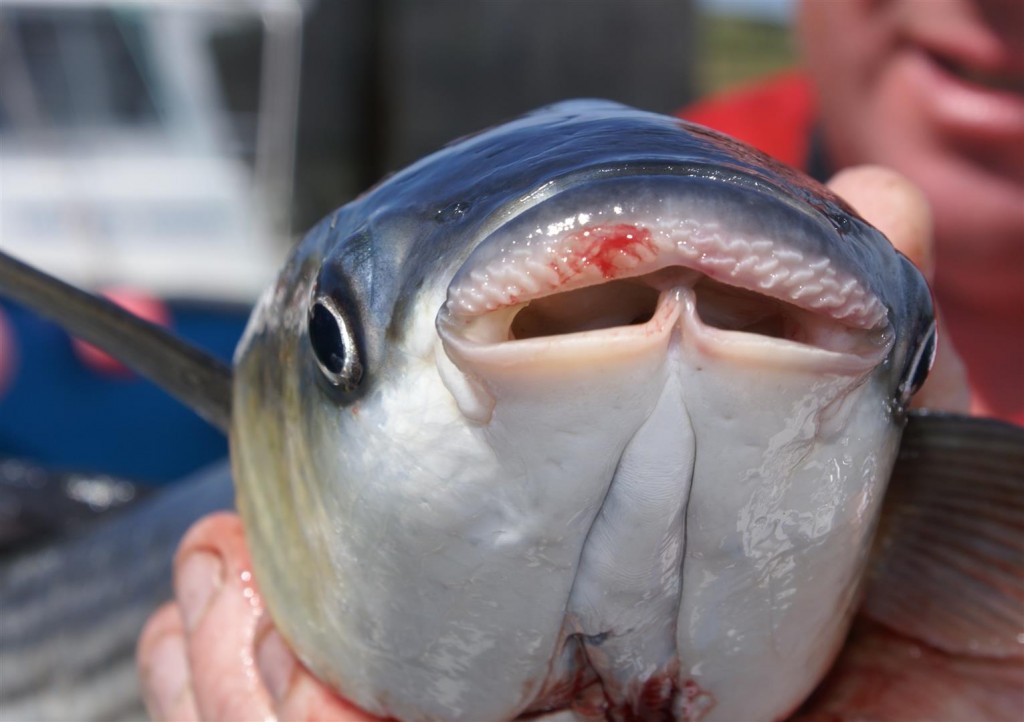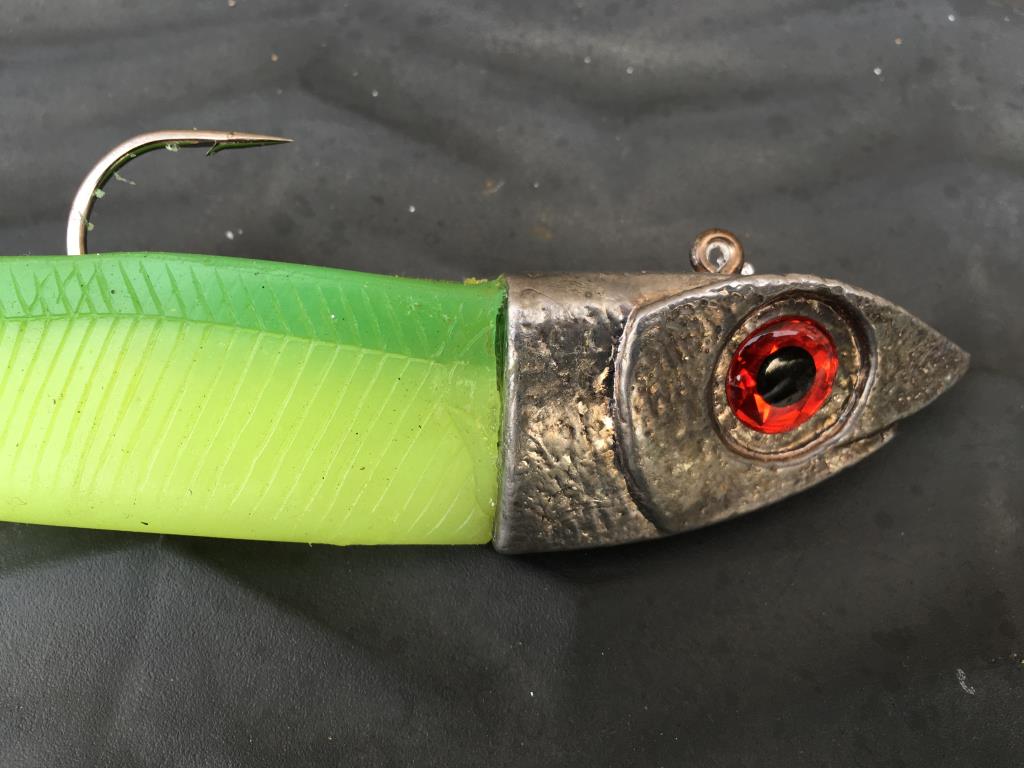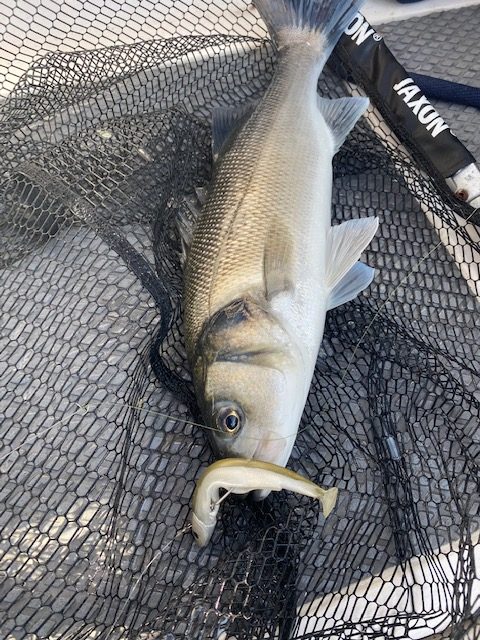*Our Mullet – Missing!
 (Click on any image to enlarge)
(Click on any image to enlarge)
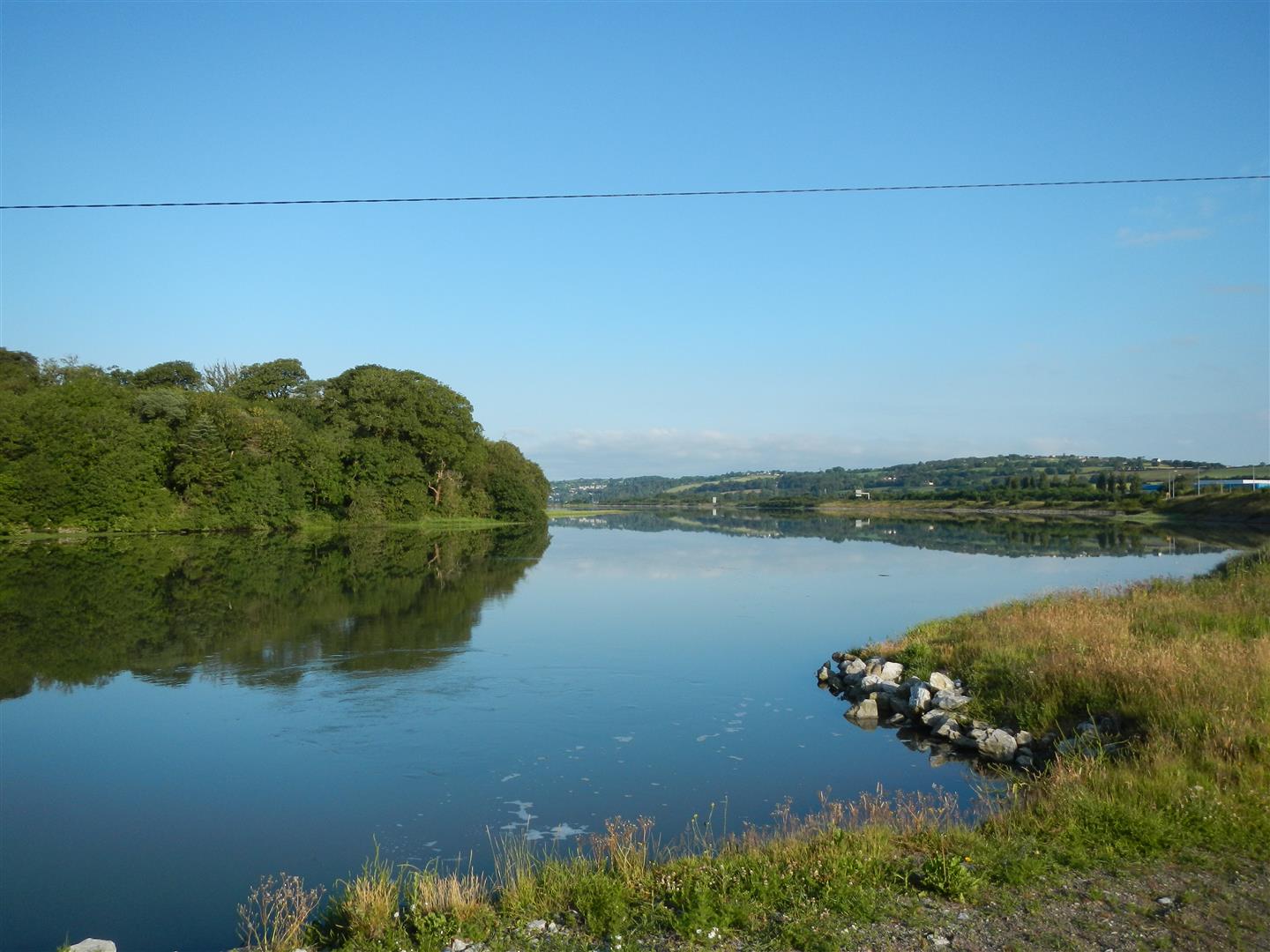
Isn’t that a beautiful vista? The picture was taken in the very early hours of a July morning in the upper regions of Cork Harbour near Fota island. It is a beautiful area. But yet this is probably the saddest photo that an angler could imagine. Why? It is simple really, the beautiful serenity and calmness of the picture hides the truth. The painful truth is that this area of Cork Harbour rarely should look calm. No, when you look across the water from Carrigtwohill to Little Island the surface of the water is never calm. The water surface should be pock-marked with ripples and swirls created by thousands of mullet swimming and feeding in the morning sunshine. Not anymore. In fact large areas of Cork Harbour are completely devoid of any mullet at all and the prospects are that this situation will continue for many years to come.
Speaking with anglers from different locations around the harbour the situation is similarly bleak. There are few mullet in the Lee North and South Channels near Custom House Quay. There is a dearth of mullet in the areas of Ringaskiddy and Cobh. Just like East Ferry and Aghada some areas have a few lonely fish swimming around but numbers are not anywhere near the “usual” numbers of fish that would populate the harbour area.
The lack of fish is staggering. What catastrophe could have happened? Where are our fish? It would nearly be easier to explain that these fish were wiped out by a natural phenomenon. It would be easier to explain that these fish were wiped out by pollution. The fact that our water quality in Cork Harbour is probably better than it has been in donkeys years is a contributory factor to the lack of mullet. It is a factor in that the cleaner waters of the harbour provide a decent habitat for mullet to live. It is sad to say that all these missing fish are all dead and are now reduced to fish meal or fish pellets. These fish were the victims of a commercial fishing industry that is in the process of racing to the bottom. Racing to the spectre of empty seas.
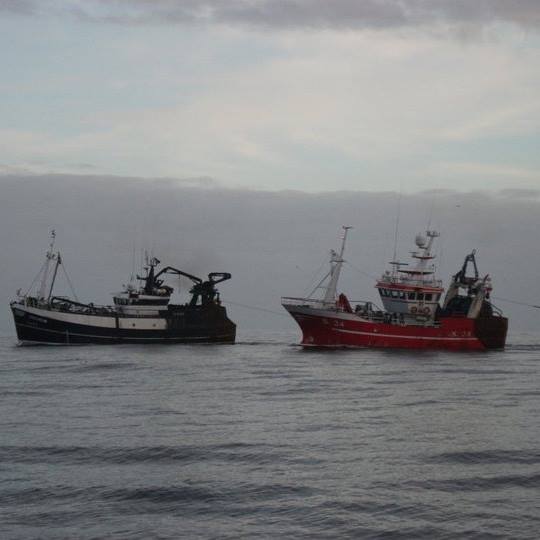
So just how did the Spanish, French and EU boats get into our harbour and clean out our stocks of mullet? What loophole was used? How did they “steal” our quota? The fact is simple, they did not. Our mullet were netted by our own. Two local boats fishing as a pair managed to decimate the mullet in Cork harbour in one tow of their net. Thanks for your resource people! All fish is worth money. It might not be much per kilo but when you net 140 tons in one haul then small money becomes big business.
We looked at the average size of fish captured by the competitors of the Cork Small Boats angling festival. Based on the average size of the fish caught that single haul of fish represented around 120,000 mullet. One hundred and twenty thousand mullet. One haul of the net.
How does something like this happen in a single haul of a trawl net? It is nature working at its best that allows for the simple hoovering up of so many fish at one go. Mullet are not resident in the harbour all year round. No, they gather together each year around November time before they head offshore for the colder winter months. Each year the fish gather together in huge numbers outside the harbour entrance. Huge shoals of mullet can be seen hugging the shore getting ready for the off – a bit like swallows gathering on power lines before they migrate each year. Unfortunately for these fish the act of the gathering is the reason for easy downfall.
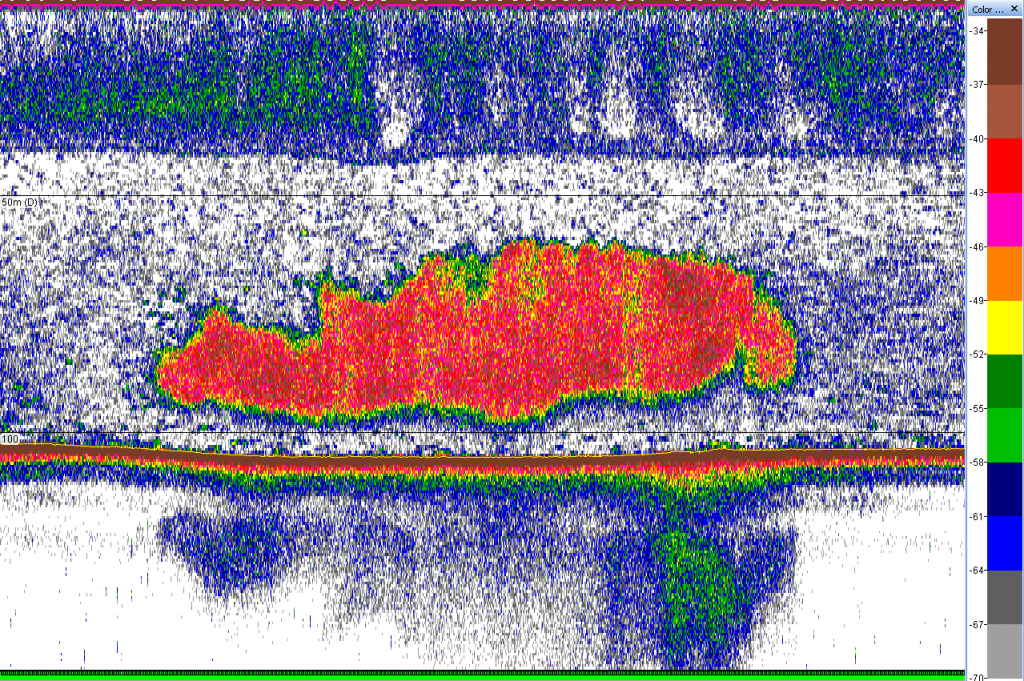
Anglers have always wondered at the technology used by big commercial fishing boats. We are told that with modern echo sounders that skippers can identify fish species. We are told that a good skipper can tell if the herrings that are being hunted have valuable roe inside. Modern technology did not spare our mullet on this occasion. Our mullet were caught “by mistake”. The skippers saw fish on their sounders, they decided to trawl for the fish, oops! The fish are not herring they are the gathering of mullet from Cork Harbour. A mistake. All fish have a value. 140 tons is worth a lot of money even at a small price per kilo.
So there you have it in a nutshell – Our mullet were getting ready for annual migration when at least 120,000 of them were killed in one sweep of a trawl. Simple. Nothing to see here. No laws are broken. Move along please…
Mullet have swam in our waters for years. They were largely ignored. Some mullet feed off the spoils offered by sewerage outflows and therefore gained an unenviable reputation. Mullet in other areas just fed mainly from the shoreline. A mullets safety from man was in the perception that they were a “dirty” fish. The habits of a few protect the many. Elsewhere mullet are eaten with gusto – “sure them continentals will eat anything!”. Small scale mullet netting goes on when demand occurs. Even this netting can be like shooting fish in a barrel. Often you can see fishermen chasing mullet into an awaiting net. It’s easy to catch a fish in a harbour. It’s easy to catch that which you can see.
Anglers like mullet. They present a superb quarry for the thinking angler. They are not a stupid fish. In fact there are few fish as intelligent and perceptive when it comes to escaping the anglers lure. The sport of mullet angling is a growing branch within an important part of the economy of the country. Anglers travel to Cork each year to target mullet. Many use bait – bread is a favourite. More use fly fishing techniques. Mullet are caught and then released by the majority of anglers. Often you will see an fly fisherman in an estuary deftly casting while wading the quiet backwaters chasing mullet. Most anglers went elsewhere in 2014.
The 140 ton haul is but a line in a ledger now.
Cuskinny in Cobh is an Special Area of Conservation (SAC). It is a protected area due to its excellent marsh and a pristine wetlands. It was home to some cracking mullet. For many anglers this was a prime location to catch large mullet. Anglers tell me there were few mullet in Cuskinny this year. I like to catch mullet at East Ferry. They were so scarce this year that they were not really a viable target. Those anglers that used come to Cork are not coming any more. The money they spent locally is gone from the area. That money might not be worth the value of one haul of 140 tons of fish but it was a gift that kept on giving year after year. The 140 ton haul is but a line in a ledger now. The anglers will not come back for years. Thanks for your resource people!
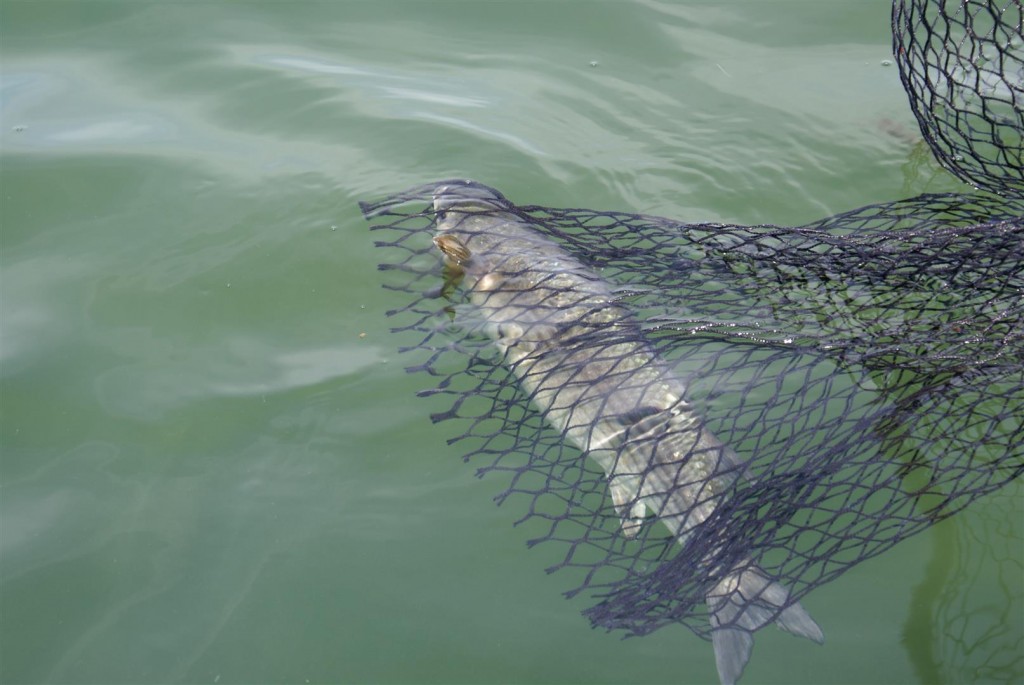
Imagine the scenario – An enterprising farmer sees that many geese migrate onto his land each year. It happens in the early winter when the farm work is less. So he builds a hide and begins to shoot geese. He sells the geese he kills. The money is not great but it is something to be doing when farming is quiet. He employs some migrant workers to help with the killing. There’s lots of geese. Local people hear about the enterprise. One day a reporter happens to see the farmer in his field shooting geese. There are hundreds of dead geese scattered around the field. The reporter reports on the story and uproar ensues. How could he kill so many? Why kill a migrating species? What will happen when they are all dead? Is the sacrifice of the species worth the sort-term gain? What does the rest of the world think of us – killing off a species that does not even breed here? The local tourism business cause uproar too. The money earned from bird watching tourists is a considerable bonus in the off season. The community will suffer due to the lack of geese. Within weeks there is an emergency bylaw passed and the industrial slaughter of geese is stopped. Conversationalists and scientists alike praise the action. The local community are delighted. The local Rural Development Company get involved as do the County Council. The area benefits from investment in the tourism infrastructure. Better to be a goose than a mullet.
All fish has a value now. Commercial fishing is big business. The protection that mullet had bestowed on themselves is forgotten – Who cares if you don’t want to eat them? We will use them for fish meal! It’s not just mullet. People are scratching their heads to see huge trawlers working in inshore or harbour areas. We do not see the scooping up of Sprats from local bays during the winter. Commercial boats that have used up herring quota concentrate on sprats during down time. There are no quotas on either sprat or mullet. No quota = No Protection.
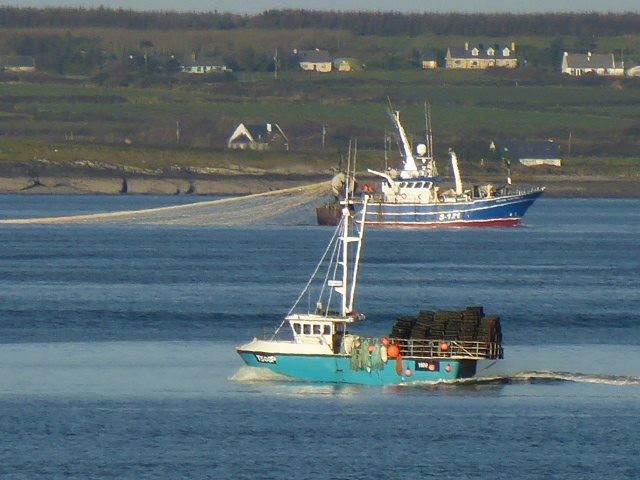
(Ballybunnion Sac)
History shows that where an unprotected fishery exists commercial fishing will continue until all of that species are gone or at least until that species is commercially unviable. Think of Cod on the Grand Banks think of Herring in the Celtic Sea. Only this year cod fishing has been banned in the Gulf of Maine. Think of Orange Roughy, a deepwater species.
If Government is the only route to protecting a species. How do you get a species on the agenda? It helps if you have a strong organisation that lobby government and government bodies. If a government body takes up the case then you stand a chance. The feeling of helplessness leads to frustration when you see the same mistakes being made; when you see our shared resources being squandered for short term gain.
Once I was on holidays in Spain. I marvelled at the huge shoals of mullet that swam in the harbour. I longed for a fishing rod and some tackle. It would be classic fishing and easy sport. Why were there no anglers fishing? Simple really; fishing, commercial or recreational, was banned in areas of the harbour. Even catch and release was banned in some areas. If it was Ireland there would be no mullet to marvel at. They would have been netted and sold for fish meal. Don’t mind the tourists, don’t mind the anglers, all fish has value.
So that’s where we are in the Ireland of 2014. Species of fish are in the firing line to be fished to extinction. At least be fished until they are not worth netting any more. There is no political will to act in the interest of all. There is little hope is getting our fish protected before they are wiped out. There seems to be little interest to manage non-quota species in a sustainable fashion that can benefit all not just quick-buck merchants. Commercial fishing is an industry that mainly goes on away from the prying eyes of the masses. If farming was carried out the same way as fishing then farming would have been banned years ago!
If you believe in reincarnation – hope you come back as a goose rather than a mullet.
[box type=”note” style=”rounded” border=”full”] Angling in numbers:
Angling Spend 2012 €755 Million
406,000 Anglers in 2012
150,000 Tourist Anglers
€280 Million – Tourist Angler Spending
[/box]




